Can You Take Too Much CBD? Find Out Here!
CBD, short for cannabidiol, has gained popularity in recent years for its potential health benefits. With its growing popularity, many people are wondering about the safety of CBD consumption and if it is possible to take too much CBD.
While it is important to use CBD responsibly and follow recommended dosages, there is little evidence of people overdosing on CBD. CBD interacts with the body's endocannabinoid system, which plays a role in various physiological processes such as appetite, pain, and memory. Research suggests that most people can tolerate CBD well, especially when using appropriate doses.
However, it is important to note that the Food and Drug Administration (FDA) does not regulate all CBD products. This lack of regulation makes it challenging to determine safe and suitable dosages. The FDA has only approved one cannabis-derived product for use in the United States, which is a prescription drug called Epidiolex. The recommended dosages for Epidiolex vary based on body weight.
If you are considering using CBD, it is essential to consult with a healthcare professional, especially if you are taking other medications. Healthcare professionals can provide guidance on appropriate dosages and potential interactions with other medications.
Key Takeaways:
- There is little evidence of people overdosing on CBD.
- CBD interacts with the body's endocannabinoid system, which plays a role in various physiological processes.
- The FDA does not regulate all CBD products, making it challenging to determine safe and suitable dosages.
- Consult with a healthcare professional when using CBD, especially if taking other medications.
- Most people can tolerate CBD well when using appropriate doses.
Is CBD Legal?
One of the key considerations when using CBD is its legal status. In the United States, the legality of CBD is a complex issue that is subject to both federal and state regulations.
Under the 2018 Farm Bill, hemp was removed from the legal definition of marijuana, which means that some hemp-derived CBD products with less than 0.3% THC (the psychoactive compound in cannabis) are federally legal. However, it is important to note that CBD products containing more than 0.3% THC are still federally illegal.
The legal landscape regarding CBD can further vary at the state level. While some states follow federal guidelines and allow the use of hemp-derived CBD with low THC content, others may have additional restrictions or specific regulations. It is essential to check the specific laws in your state, especially when traveling, to ensure compliance.
It is also worth noting that the FDA does not regulate all CBD products. This lack of regulation can lead to inaccurately labeled products on the market. As a result, it is advisable to purchase CBD products from reputable sources that can provide transparency and quality assurance through third-party testing.
| Legality | Federal Level | State Level |
|---|---|---|
| Hemp-derived CBD with less than 0.3% THC | Legal | May vary (check state laws) |
| CBD with more than 0.3% THC | Illegal | Illegal |
The Legality of CBD at a Glance
- Hemp-derived CBD with less than 0.3% THC is federally legal.
- CBD products with more than 0.3% THC are federally illegal.
- State laws regarding CBD can differ and may impact legality.
- Purchase CBD products from reputable sources to ensure quality and compliance.
- Consult state laws, especially when traveling, to stay within legal boundaries.
By understanding the legal landscape and staying informed about both federal and state regulations, individuals can navigate the world of CBD with confidence and ensure compliance with applicable laws.
CBD Dosage and Safety Guidelines
The World Health Organization states that CBD is safe when used appropriately. However, the FDA has only approved one CBD product for use in the United States, which is Epidiolex. The recommended starting dosage for Epidiolex is 2.5 mg per kilogram of body weight twice a day, gradually increasing to 5 mg per kilogram of body weight twice a day.
In a 2020 review, researchers found that humans can tolerate CBD doses of up to 1,500 mg per day. Factors that may influence CBD's effects include potency, route of administration, concurrent drug use, and drug interactions.
It is important to consult with a healthcare professional to determine suitable dosages and potential interactions with other medications.
| Dosage Guidelines | Recommendations |
|---|---|
| Start with a low dose | Begin with a low dosage and gradually increase if needed. |
| Consider body weight | Dosages may vary based on an individual's weight. |
| Monitor for side effects | Be aware of any adverse reactions and adjust dosage accordingly. |
| Consult with a healthcare professional | Seek medical advice to determine the appropriate CBD dosage. |
Remember, CBD affects individuals differently, so finding the optimal dosage may require some trial and error. It is essential to start low, monitor your body's response, and adjust accordingly under the guidance of a healthcare professional.
Potential Side Effects of CBD
CBD is generally well-tolerated, but it's important to be aware of potential side effects. While most individuals experience no adverse effects, some people may encounter mild and temporary reactions. These side effects may include:
- Drowsiness: Some individuals may feel sleepy or fatigued after taking CBD.
- Changes in alertness: CBD can affect cognitive function and alertness levels.
- Diarrhea: In some cases, CBD intake can lead to digestive issues, such as diarrhea.
- Decreased appetite: CBD may cause a slight decrease in appetite for some individuals.
- Irritability and agitation: In rare instances, CBD may trigger irritability and agitation.
It's important to note that the U.S. Food and Drug Administration (FDA) cautions about potential liver damage associated with CBD usage. While this is rare, individuals should be aware of the possibility and seek medical attention if they experience any symptoms of liver injury, such as yellowing of the skin or eyes, dark urine, or persistent fatigue.
Additionally, CBD can interact with certain medications, potentially leading to adverse effects. It's crucial to consult with a healthcare professional before using CBD, particularly if currently taking other medications.
Some animal studies indicate that CBD may cause infertility in males, but further research is needed to determine if this applies to humans. It's important to consider this factor when planning to use CBD for an extended period or in high doses.
Seeking Medical Help
While CBD side effects are generally mild, it's essential to seek medical help if experiencing severe symptoms or adverse reactions. Symptoms such as psychosis, hallucinations, delusions, or loss of consciousness should not be ignored and should be promptly addressed by a healthcare professional.
“It's important to be aware of potential side effects and seek medical help if experiencing severe symptoms such as psychosis, hallucinations, delusions, or loss of consciousness.”
| Common CBD Side Effects | Severity |
|---|---|
| Drowsiness | Mild |
| Changes in alertness | Mild |
| Diarrhea | Mild |
| Decreased appetite | Mild |
| Irritability and agitation | Mild |
| Liver injury (rare) | Potentially serious |
Case Study: Taking Too Much CBD
In a 2020 case study, a 56-year-old male ingested 370 mg of CBD by consuming two packets of CBD gummies. He experienced bizarre behavior, slurred speech, and vomiting, leading to a visit to the emergency department. The medical team provided intravenous fluids, oxygen, antiemetics, and consistent stimulation. The individual made a full recovery the following day. It is important to note that it was unclear whether this was a true CBD overdose or if the product was contaminated with unknown toxins. This case highlights the potential risks of taking high doses of CBD or purchasing products from unreliable sources.

Understanding CBD Overdose
While it is technically possible to overdose on CBD, the toxic dose is exceptionally high. In fact, it is estimated that an average male weighing 180 lbs would need to ingest more than 33 tablespoons of CBD oil in one sitting to qualify as an overdose.
CBD overdoses are not fatal. Even in extremely high doses, CBD is more likely to cause extreme drowsiness, lethargy, upset stomach, nausea, and diarrhea rather than death. The World Health Organization (WHO) confirms that CBD exhibits no abuse or dependence potential and has no major side effects or risk of dependency.
It is crucial to understand that CBD overdose is highly unlikely in normal circumstances. The therapeutic effects and safety of CBD are well-documented, making it relatively safe for most people to consume when used responsibly.
What Does the Research Say?
Research and studies conducted on CBD have shown that it has a favorable safety profile, even at high doses. According to a study published in the journal Current Drug Safety, participants were administered up to 1500 mg of CBD daily for an extended period without experiencing any severe adverse effects.
“CBD exhibits no effects indicative of any abuse or dependence potential… To date, there is no evidence of public health-related problems associated with the use of pure CBD.”
World Health Organization (WHO)
It is important to note that individual responses to CBD may vary, and it is always advisable to start with a low dosage and gradually increase until the desired effects are achieved. Consulting with a healthcare professional can provide personalized guidance on CBD usage and help mitigate any potential risks.
Although CBD has been generally well-tolerated by most individuals, it is crucial to source CBD products from reputable manufacturers and ensure they undergo proper testing for quality and purity. This helps minimize the risk of contaminants and ensures that the CBD is accurately labeled with its potency.
| Potential CBD Overdose Symptoms: | Risk Level: |
|---|---|
| Extreme drowsiness | Minimal |
| Lethargy | Minimal |
| Upset stomach | Minimal |
| Nausea | Minimal |
| Diarrhea | Minimal |
The Difference Between CBD and THC
When it comes to CBD and THC, it's important to understand the key differences between these two cannabinoids. CBD, or cannabidiol, and THC, or tetrahydrocannabinol, are both compounds derived from the cannabis plant, but they have distinct properties and effects on the body.
Unlike CBD, THC is the psychoactive component of cannabis that produces the “high” sensation commonly associated with marijuana use. This is why THC is regulated differently from CBD and has a greater potential for abuse.
Moreover, THC can have toxic and potentially lethal side effects when taken in excessive amounts. Ingesting or inhaling THC can lead to a range of adverse reactions, including:
- Hypotension (low blood pressure)
- Panic/anxiety
- Muscle spasms
- Respiratory depression and distress
- Reduced memory function
- Delirium
- Ataxia (lack of muscle coordination)
- Increased risk of heart attack
- Lethargy
- Hyperkinesis (abnormally increased muscle activity)
It is important to note that while there is no documented lethal dose of THC, serious symptoms and complications can occur when THC is consumed above certain thresholds. This highlights the potential risks associated with the use of THC and the importance of using it responsibly.
Ensuring CBD Quality and Safety
Ensuring the quality and safety of CBD products is crucial. Many products on the market have inaccurate labels and may contain contaminants. To ensure the highest quality, purchase CBD products from trustworthy sources that provide third-party testing information. Look for products that have been tested by ISO-compliant third-party labs and can provide a Certificate of Analysis (CoA) verifying the product's components and concentration. It is important to know where and how the hemp is grown, as well as the extraction methods used.
| Key Factors | Importance |
|---|---|
| Reputable CBD Sources | High |
| CBD Third-Party Testing | High |
| CBD Quality Control | High |
Benefits of CBD
Incorporating high-quality CBD into a health and wellness routine can have several benefits. CBD, short for cannabidiol, is a naturally occurring compound found in the cannabis plant. Although more research is needed to fully understand its potential, CBD shows promise in providing relief for various conditions, including pain, sleep issues, and anxiety.
Easing Aches and Discomfort
One of the primary uses of CBD is its potential to alleviate pain and reduce inflammation. CBD interacts with the body's endocannabinoid system, which plays a role in regulating pain signals. Clinical trials have shown that CBD can be effective in managing chronic pain, arthritis, and neuropathic pain.
Promoting Deep and Restful Sleep
Many individuals struggle with sleep disorders or have difficulty falling asleep and staying asleep throughout the night. CBD may be a natural alternative for promoting better sleep. Research suggests that CBD can help regulate sleep patterns and improve the quality of sleep by reducing anxiety and promoting relaxation. It may also be beneficial for individuals with sleep disorders like insomnia.
Easing Nerves and Promoting Relaxation
Anxiety affects millions of people, and finding effective treatments can be challenging. CBD has been studied for its potential anti-anxiety properties and has shown promising results in reducing anxiety symptoms. CBD interacts with receptors in the brain that regulate mood and stress responses, helping to alleviate feelings of anxiety and promote a sense of calm and relaxation.
Providing an Energy Boost
While CBD is commonly associated with relaxation, it can also provide an energy boost for those who need a natural pick-me-up. CBD interacts with the body's endocannabinoid system, influencing the release of neurotransmitters and hormones that regulate energy levels. It can help combat fatigue, increase focus and mental clarity, and improve overall energy levels without the jitters or crashes associated with caffeine or stimulants.

It's important to note that individual experiences with CBD may vary, and further research is needed to fully understand its potential benefits. If you're considering incorporating CBD into your wellness routine, it's recommended to start with a low dosage and gradually increase as needed. It's also advised to consult with a healthcare professional, especially if you have underlying medical conditions or are taking other medications.
Conclusion
Can you take too much CBD? The evidence suggests that CBD is generally well-tolerated and the risk of overdosing is minimal. When used appropriately and in the right dosages, CBD is safe for most people. However, it is essential to follow dosage guidelines and consult with a healthcare professional, especially if you are taking other medications.
It is also crucial to purchase CBD products from reputable sources to ensure quality and safety. The FDA does not regulate all CBD products, so it's important to be cautious and look for products that have undergone third-party testing. By doing so, you can verify the accuracy of the product's components and concentration, ensuring you are getting a reliable and trustworthy CBD product.
While CBD's potential side effects are generally mild and temporary, it is important to be aware of them. Severe symptoms may indicate the use of a contaminated product, highlighting the importance of selecting reputable sources. Remember, as with any supplement, it is crucial to use CBD responsibly and be aware of potential risks. By following these guidelines, you can safely incorporate CBD into your wellness routine and enjoy its potential benefits.
FAQ
Can you take too much CBD?
Individuals can tolerate relatively high doses of CBD, and there is little evidence of people overdosing. Research suggests that people can tolerate CBD well, especially when using appropriate doses. However, it is important to note that the FDA does not regulate all CBD products, so it can be challenging to determine safe and suitable dosages. Consult with a healthcare professional when using CBD, especially if taking other medications.
Is CBD legal?
The 2018 Farm Bill removed hemp from the legal definition of marijuana, making some hemp-derived CBD products with less than 0.3% THC federally legal. However, CBD products containing more than 0.3% THC are still federally illegal but may be legal under some state laws. It is crucial to check state laws, especially when traveling. The FDA does not regulate all CBD products, and there may be inaccurately labeled products on the market. Purchase CBD products from reputable sources.
What are the CBD dosage and safety guidelines?
The World Health Organization states that CBD is safe when used appropriately. The FDA has only approved one CBD product for use in the United States, which is Epidiolex. The recommended starting dosage for Epidiolex is 2.5 mg per kilogram of body weight twice a day, gradually increasing to 5 mg per kilogram of body weight twice a day. Factors that may influence CBD's effects include potency, route of administration, concurrent drug use, and drug interactions. Consult with a healthcare professional to determine suitable dosages and potential interactions with other medications.
What are the potential side effects of CBD?
Common side effects of CBD include drowsiness, changes in alertness, diarrhea, decreased appetite, irritability, and agitation. The FDA cautions that CBD has the potential to cause liver injury and may interact with other drugs, leading to serious side effects. While animal studies suggest that CBD can cause infertility in males, more research is needed to determine if this applies to humans. Be aware of potential side effects and seek medical help if experiencing severe symptoms such as psychosis, hallucinations, delusions, or loss of consciousness.
Can you overdose on CBD? Any case studies?
While it is technically possible to overdose on CBD, the toxic dose is exceptionally high. A case study reported a 56-year-old male who ingested 370 mg of CBD and experienced unusual behavior, slurred speech, and vomiting. However, it was unclear whether this was a true CBD overdose or if the product was contaminated. This case highlights the potential risks of taking high doses of CBD or purchasing products from unreliable sources.
What is the difference between CBD and THC?
CBD differs significantly from THC, the cannabinoid responsible for the “high” associated with marijuana use. Unlike CBD, THC can have toxic and potentially lethal side effects. THC can cause symptoms such as hypotension, panic/anxiety, muscle spasms, respiratory depression and distress, reduced memory function, delirium, ataxia, increased risk of heart attack, lethargy, and hyperkinesis. Use CBD responsibly and be aware of potential risks.
How can I ensure the quality and safety of CBD products?
To ensure the highest quality, purchase CBD products from trustworthy sources that provide third-party testing information. Look for products that have been tested by ISO-compliant third-party labs and can provide a Certificate of Analysis (CoA) verifying the product's components and concentration. Know where and how the hemp is grown, as well as the extraction methods used.
What are the benefits of CBD?
Incorporating high-quality CBD into a health and wellness routine can have several benefits. CBD may help ease aches and discomfort, support deep and restful sleep, ease nerves and promote relaxation, and provide an energy boost. Individual experiences may vary, and further research is needed to fully understand the potential benefits of CBD.
Conclusion
CBD is generally well-tolerated, and there is little evidence of people overdosing on CBD. When used appropriately and in appropriate dosages, CBD is safe for most people. It is important to follow dosage guidelines, purchase CBD products from reputable sources, and consult with a healthcare professional if taking other medications. Use CBD responsibly and be aware of potential risks.
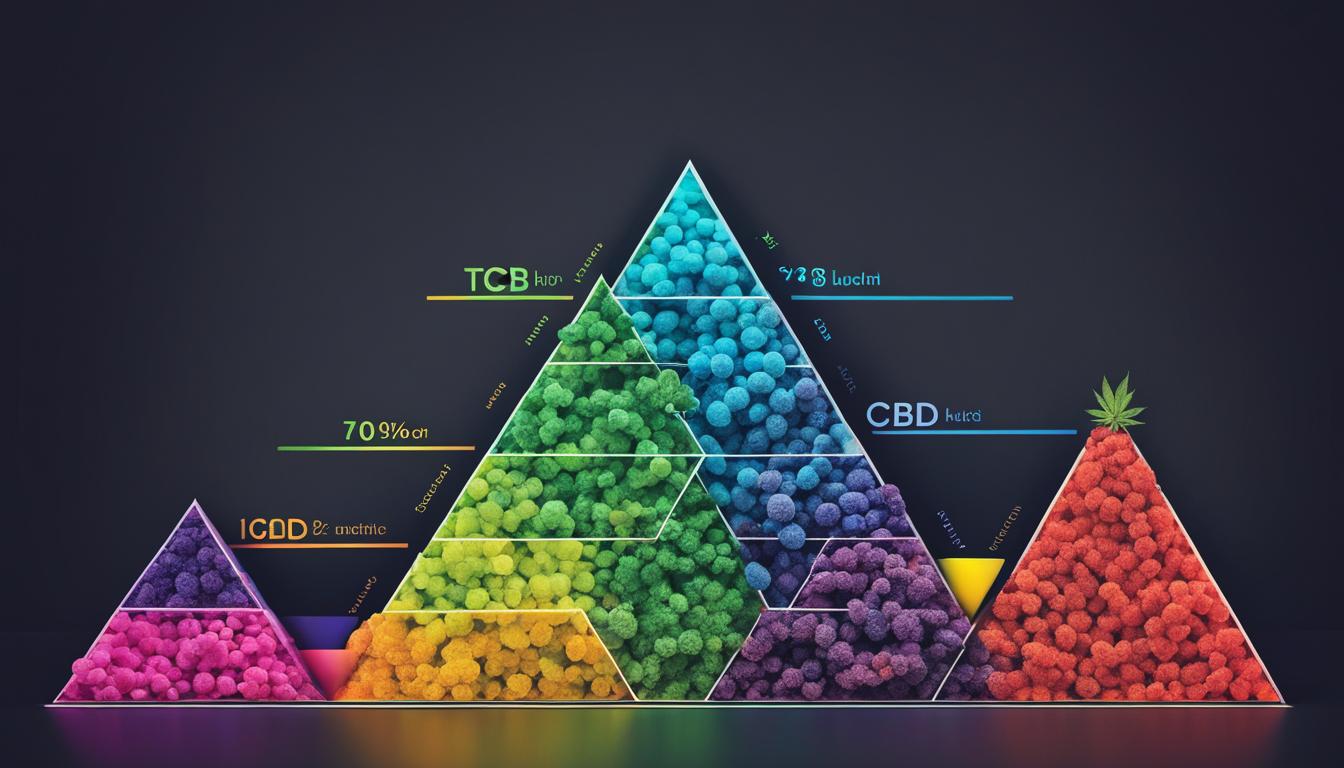


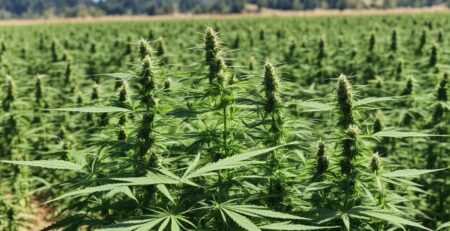


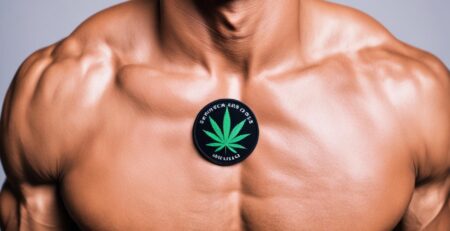
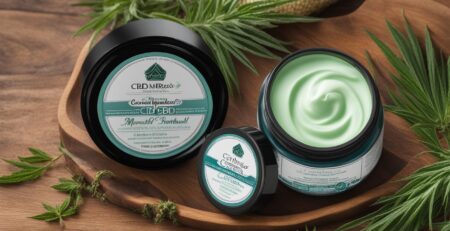
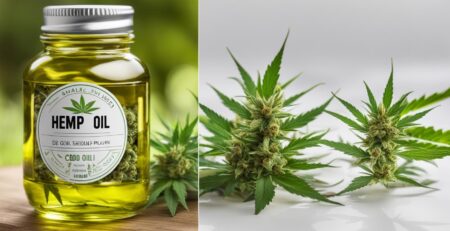


Leave a Reply